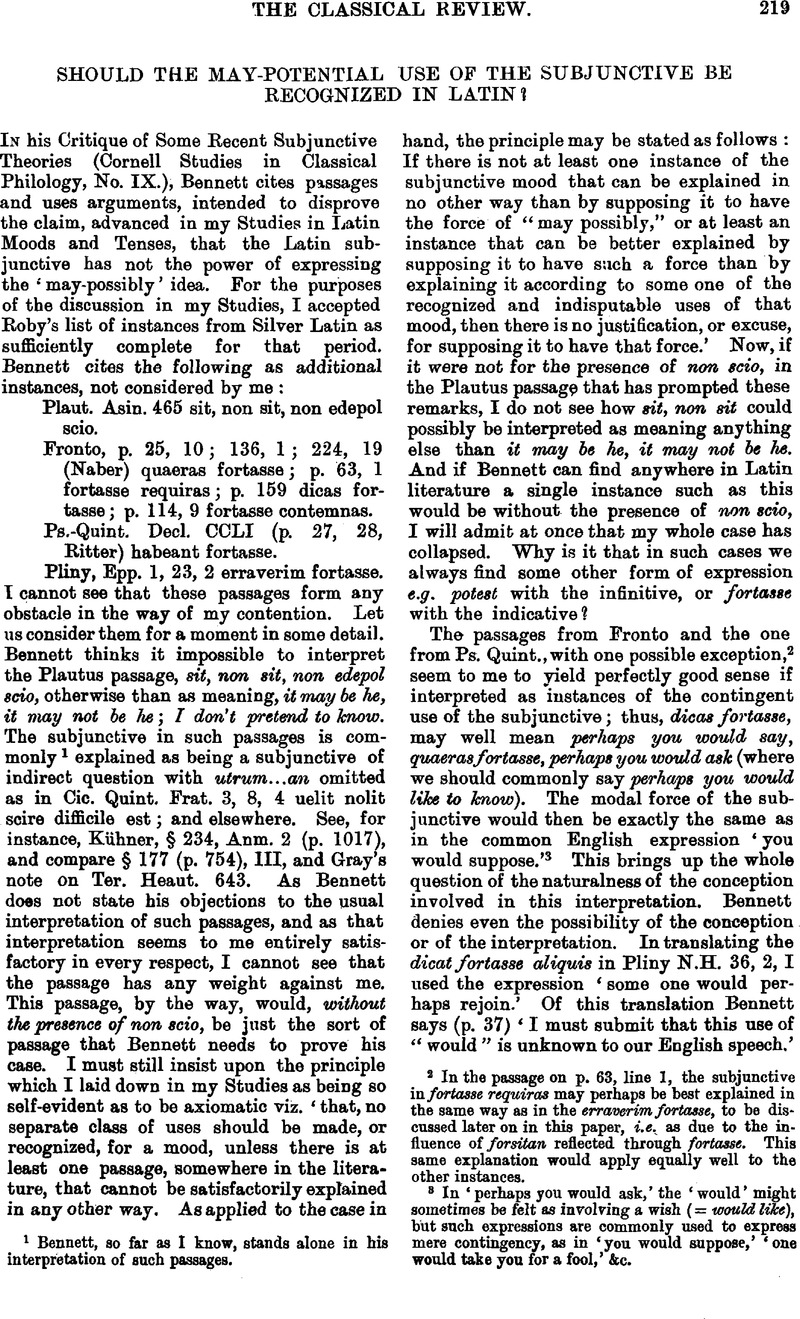No CrossRef data available.
Published online by Cambridge University Press: 27 October 2009

page 219 note 1 Bennett, so far as I know, stands alone in his interpretation of such passages.
page 219 note 2 In the passage on p. 63, line 1, the subjunctive in fortasse requiras may perhaps be best explained in the same way as in the erraverim fortasse, to be discussed later on in this paper, i.e. as due to the influence of forsitan reflected through fortasse. This same explanation would apply equally well to the other instances.
page 219 note 3 In ‘perhaps you would ask,’ the ‘would’ might sometimes be felt as involving a wish (= would like), but such expressions are commonly used to express mere contingency, as in ‘you would suppose,’ ‘one would take you for a fool,’ &c.
page 220 note 1 In giving this translation,. the authors of grammars probably had chiefly in mind certain subordinate clauses, e.g. purpose clauses; but students invariably gained the impression that the translation represented the regular force of the mood in independent clauses. Some grammars even gave can love, &c., side by side with may love.